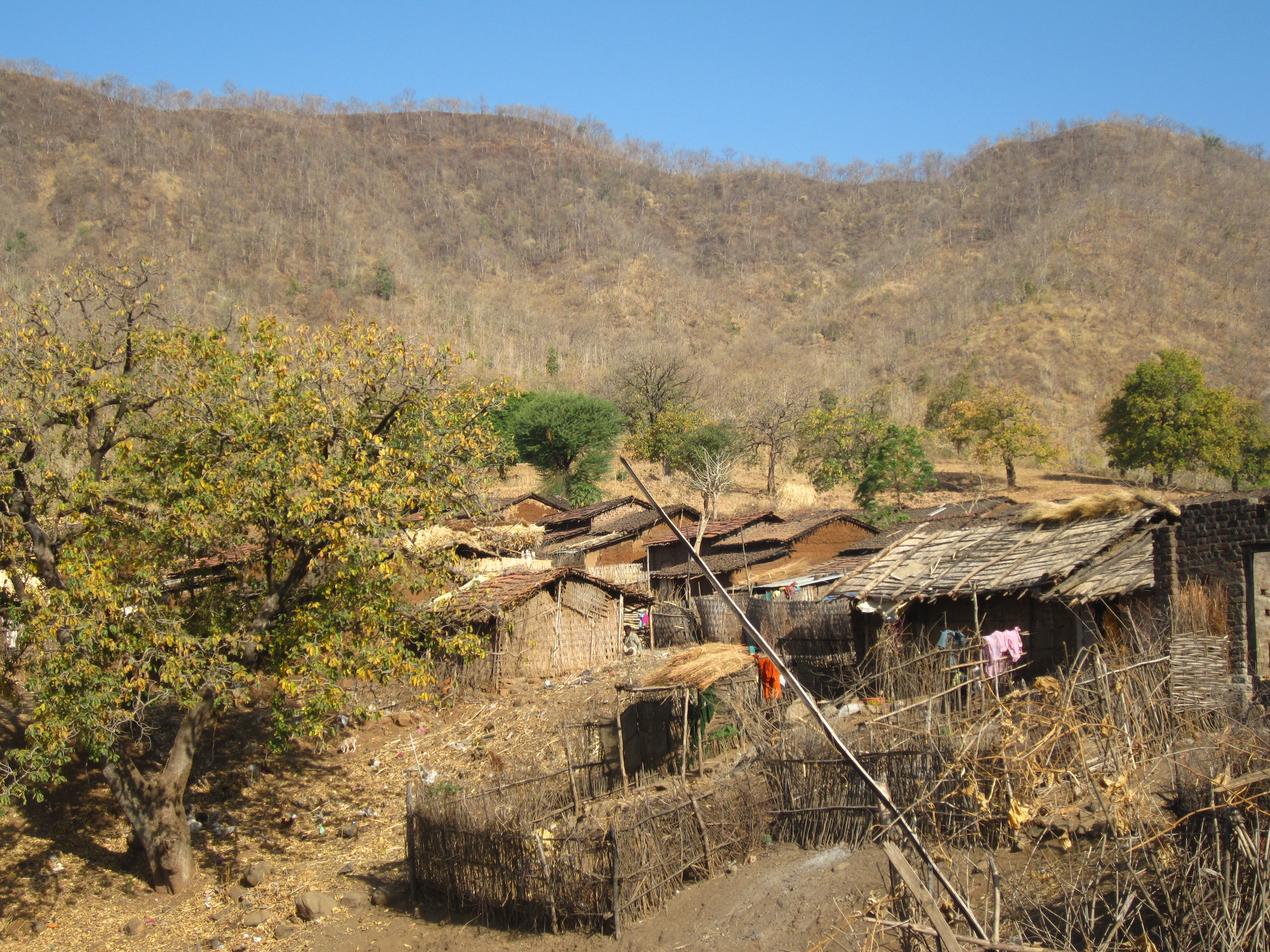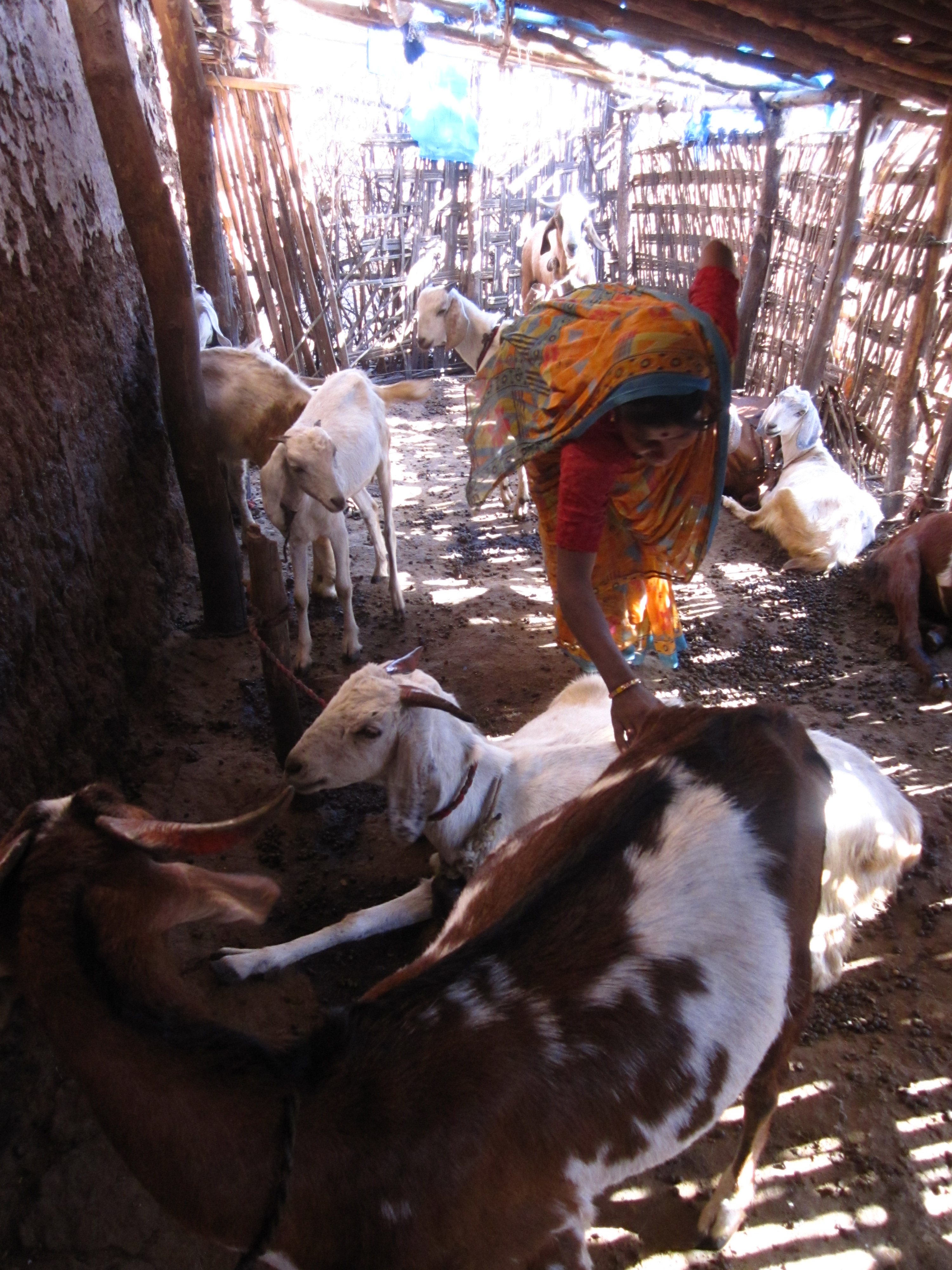
India is an agrarian country with 52% of its people employed in the agricultural industry. As I rode the train between some of India’s southern states during my last trip there, there was no shortage of evidence of this. Outside of the major cities in rural areas, you are surrounded for miles by farm crops specific to each state. Coconut and pineapple trees, mango groves, fields of bright red chilies, cotton, maize, and the deep dark green of the rice paddies, form the squares of the quilt which this country is covered in. The livelihood of millions of people in India are dependent on farming and consequently on the weather and environment. Agriculture in India is often attributed as “gambling with the monsoon” because of its almost exclusive dependency on this season. There, you are at the mercy of the environment, and often victims of it as communities struggle through droughts, floods, land degradation, poor growing conditions etc. This can be seen in the situation of the Korku indigenous people, living in the village of Hettighat, in the Melghat Mountain region of Maharastra State, one of the areas where Save A Family Plan operates.
On the morning of my visit to Hettighat we set out on a bumpy, unpaved road, dodging pot holes, goats and wooden carts being pulled by oxen. I had left behind the lush green crops that I frequently saw in other states, and instead was surrounded by dry and barren hills. We passed through a small village at the bottom of the mountain that had a small market and the only water access in that area. I was told that in past years the mountains had been more heavily forested and rivers were flowing for longer periods of the year. Due to deforestation the density of the forest reduced and the availability of water became limited. For the last few years, there has been scarcity of water due to reduced rainfall and erratic Monsoon seasons. These poor environmental conditions make agricultural livelihoods impossible in Hettighat. As a result, families are forced to migrate from the area for employment during harvest season. Migration forces families to uproot their lives and is the source of many safety and human rights violations. It takes away from villages’ attempts to create a sustainable economy and it forces children to be removed from school which contributes to illiteracy. For women, there are high reports of violence and sexual abuse, and they live in small tents for months with no access to water, sanitation facilities or health services. There is no regulation of pay or labour laws to protect women. They work longer hours than men and are paid less.

Through Save A Family Plan and the Jevan Vikas Sanstha Social Service Society, the community of Hettighat is being given the opportunity to diminish the need for migration and to create healthy, sustainable communities. Our Family Development Program encourages locals to start small, innovative, businesses through a micro-credit program. Businesses such as snack shops and animal rearing are becoming successful as they do not rely on the agricultural industry, erratic monsoon rains or the poor growing conditions. Through the program and community participation, the local economy strengthens, and the skill training offered by staff members provides opportunities for new jobs and businesses to be created. In building and strengthening their community through participation, there is no longer a need to migrate and children can stay in their community to attend school. Their health and safety situation has improved and they are able to budget and rely on a stable income. We are excited for the community of Hattighat as they grow and strengthen their community through economic justice and empowerment of their people.
By Laura Stinson
SAFP Canada Staff

